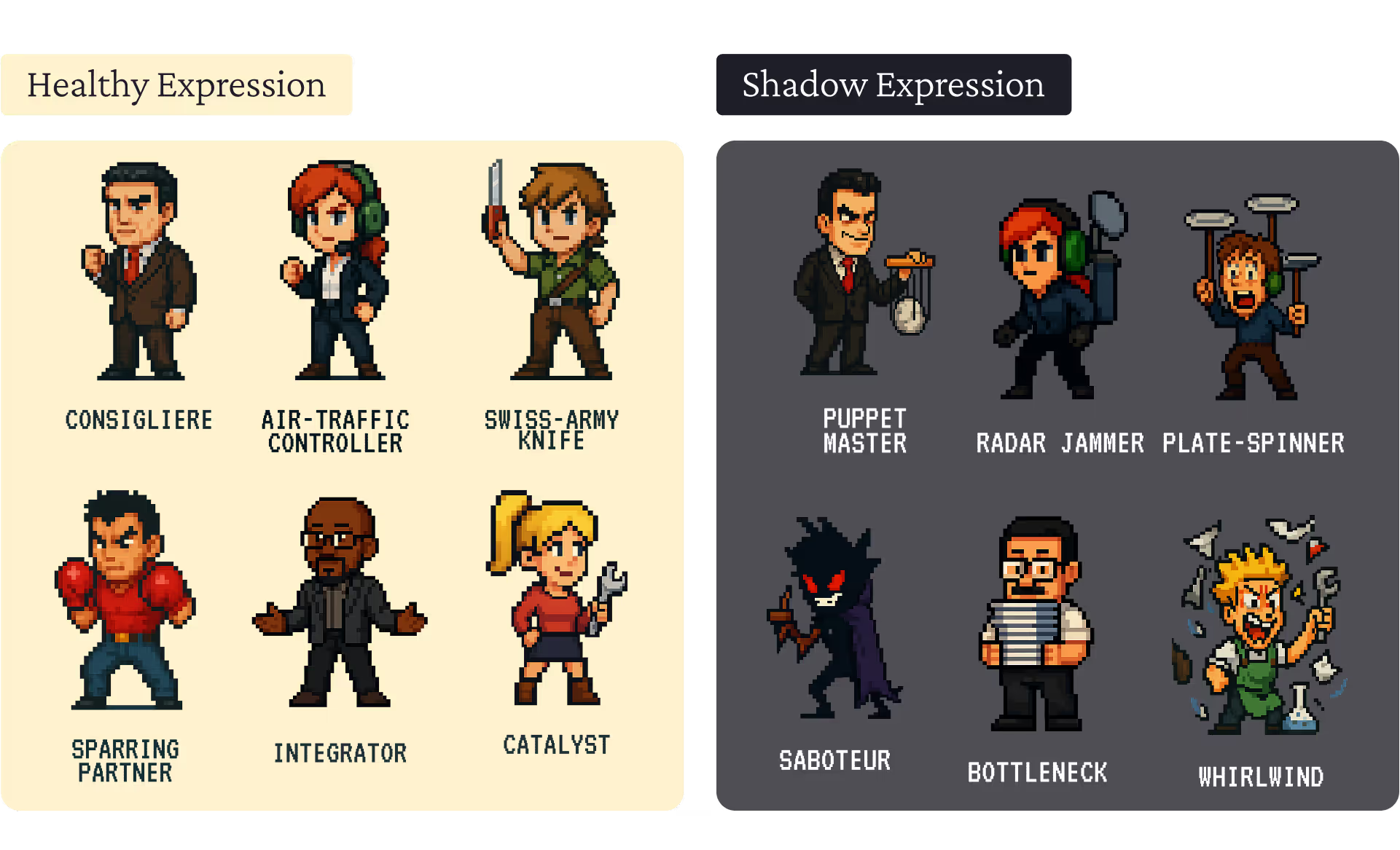Introduction
The Chief of Staff (CoS) is a pivotal role in any organization, acting as a crucial link between executive leadership and operational execution. This multifaceted position demands a unique blend of skills to ensure the organization’s goals are met efficiently and effectively. As the role evolves, so too must the competencies of those who fill it. Skill development is not just a career enhancement; it’s a necessity for thriving in the CoS position. This blog post will delve into the core skills needed to excel as a Chief of Staff, offering practical advice on how to cultivate these abilities to drive organizational success.
Skill 1: Analytical Skills
Why It’s Essential
Analytical skills are crucial for a Chief of Staff - as is an analytics mindset - as they enable you to interpret data, assess performance metrics, and make data-driven decisions based on evidence. This skill set helps in identifying trends, solving complex problems, and supporting strategic initiatives with data-driven insights.
Example
Suppose the CEO wants to understand why quarterly sales dropped by 10%. As the Chief of Staff, you gather data from various departments, such as marketing, sales, and customer feedback. After analyzing the data, you identify that a new competitor launched a product with similar features at a lower price, drawing away customers. Armed with this insight, you recommend a promotional campaign to highlight your product’s unique value proposition, mitigating the sales drop in the following quarter.
How to Develop
- Engage in Data Analysis Training: Consider taking courses or workshops on data analysis and statistical methods, such as a data analytics bootcamp with Springboard. Learning how to use analytical tools and software can enhance your ability to interpret data effectively. Brush up on your spreadsheet skills with 15 Spreadsheet Functions Chiefs of Staff Need to Know.
- Work on Real-Life Data Projects: Identify internal projects where data analysis is needed—perhaps a departmental review or a marketing campaign analysis. Collaborate with analytics teams or colleagues who are skilled in this area. By applying theoretical knowledge to real problems, you’ll gain valuable experience in interpreting data in context.
- Stay Informed on Industry Trends: Dedicate time each week to read relevant articles, subscribe to industry newsletters, and follow thought leaders on platforms like LinkedIn. Attend webinars or industry conferences focused on data analytics to learn about the latest tools and methodologies, which can enrich your analytical perspective.
Skill 2: Communication
Why It’s Essential
Effective communication is the bedrock of a Chief of Staff’s role. You must be able to convey information clearly and concisely to various stakeholders, from executive teams to departmental staff. Excellent communication skills facilitate alignment, reduce misunderstandings, and foster a collaborative work environment.
Example
You’re tasked with aligning department heads on a new strategic initiative. During a meeting, some leaders express concerns about how the initiative might strain their team’s resources. By actively listening and rephrasing their concerns for clarity, you help resolve misunderstandings and provide clear communication about how the initiative’s goals align with the company’s broader objectives. Your effective communication builds trust and ensures everyone is on the same page.
How to Develop
- Improve Public Speaking: Besides joining organizations like Toastmasters, seek out opportunities to present in team meetings or at company-wide events. Recording your practice sessions and reviewing them can help identify areas for improvement. Consider taking a public speaking class that provides personalized feedback.
- Hone Writing Skills: Practice writing in various formats—reports, emails, presentations—to build versatility. Seek feedback from peers or mentors on your writing style and clarity. Consider saving some of these templates and resources in your communication toolkit to help streamline your efforts.
- Engage in Active Listening: Practice writing in various formats—reports, emails, presentations—to build versatility. Seek feedback from peers or mentors on your writing style and clarity. Additionally, consider taking writing courses focused on business communication to refine your ability to articulate complex ideas succinctly.
Skill 3: Project Management
Why It’s Essential
Project management is integral to the Chief of Staff’s ability to execute cross-functional initiatives effectively. Managing projects with a clear structure and timeline ensures that objectives are met, resources are allocated efficiently, and deadlines are adhered to.
Example
Your organization is launching a new software tool across multiple departments, and you are responsible for overseeing the rollout. By breaking the project into smaller phases, assigning tasks, and setting deadlines using a tool like Trello, you ensure that the rollout proceeds smoothly. When unforeseen technical issues arise, you quickly adjust the timeline and communicate changes, keeping the project on track.
How to Develop
- Get Certified: Pursuing certifications like PMP (Project Management Professional) or Agile methodologies can provide you with a solid foundation in project management principles. Online platforms like PMI and Scrum Alliance offer courses that can fit into your schedule and provide industry-recognized credentials.
- Manage Smaller Projects: Start by volunteering for small-scale initiatives within your organization. Use these projects as hands-on learning experiences, focusing on different aspects of project management, from planning to execution. Regularly seek feedback on your project outcomes to refine your approach.
- Utilize Project Management Tools: Experiment with various project management tools like Asana, Monday.com, or Jira. Each platform has unique features, so try out a few to see which aligns best with your workflow. Consider taking online tutorials or courses to fully leverage these tools, ensuring efficient project tracking and collaboration. Not sure which project management tool is the right choice for your team? Check out this comprehensive Vendor Selection Course to guide you through selecting the best tools for your needs.
Skill 4: Leadership and Influence
Why It’s Essential
Leadership and influence are critical for a Chief of Staff who often needs to guide teams and influence key stakeholders without direct authority. The ability to lead effectively and persuade others can drive initiatives forward and foster a positive organizational culture.
Example
The executive team is divided on whether to expand into a new market. Without formal authority to make the decision, you use your influence to organize a meeting where key stakeholders can share their data and perspectives. Through clear communication and facilitation, you help the group reach a consensus, and they ultimately decide to proceed with a pilot program to test the market.
How to Develop
- Lead Volunteer Projects: Seek leadership opportunities in community service or professional organizations. Leading a team in a volunteer capacity can provide invaluable experience in managing diverse personalities and working towards a common goal, all while building your confidence in leadership.
- Learn Negotiation Techniques: Enroll in workshops or courses that focus on negotiation and conflict resolution. Role-playing different scenarios can enhance your ability to navigate difficult conversations. Check out our blog post “Learn to Negotiate”, or read books like "Getting to Yes" which provides frameworks and strategies that can be applied in various contexts.
- Study Leadership Principles: Create your own reading list of influential leadership books and articles. Join book clubs or discussion groups to share insights and learn from others. Engaging with mentors or coaches can also provide personalized insights and experiences that can shape your leadership style.
Skill 5: Problem-Solving
Why It’s Essential
Problem-solving is vital for a Chief of Staff as unexpected challenges frequently arise in a dynamic business environment. The ability to quickly and effectively resolve issues ensures that operations remain smooth and that the organization can adapt to changing circumstances.
Example
Midway through a critical project, you discover that a key vendor has unexpectedly pulled out, jeopardizing the project’s timeline. Instead of panicking, you quickly assess alternative vendors and negotiate a new contract within a week. This quick and effective problem-solving keeps the project moving forward with minimal disruption.
How to Develop
- Engage in Critical Thinking and Design Thinking Exercises: Regularly practice critical thinking by analyzing case studies, participating in problem-solving workshops, and engaging in brain teasers or strategic games. Promote creative exploration using design thinking to develop solutions that balance practicality with user needs and watch our webinar on design thinking for more exercise ideas.
- Learn from Past Experiences: Reflect on past problems you’ve encountered and analyze how you resolved them. Identify what worked, what didn’t, and how you can apply these lessons to future challenges.
- Seek Diverse Perspectives: Actively cultivate relationships with colleagues across different departments to deepen your understanding of various challenges and approaches. Organize cross-functional meetings to encourage team members to share insights and collaboratively brainstorm solutions. Embracing diverse perspectives fosters innovation and enhances problem-solving capabilities. For additional opportunities to connect with other Chiefs of Staff, explore upcoming meetups in your area or join our online community to discuss challenges and share experiences.
Conclusion
Mastering the Chief of Staff role requires a comprehensive skill set and a commitment to continuous development. Analytical skills, communication, project management, leadership, and problem-solving are all essential competencies that contribute to success in this position. By actively working to enhance these skills, you not only improve your own effectiveness but also drive greater success for your organization. Embrace the challenge, invest in your growth, and watch as your impact as a Chief of Staff unfolds.
By focusing on these areas and implementing the strategies outlined, you can elevate your performance and contribute more significantly to your organization’s goals. The journey of skill development is ongoing, but with dedication and effort, you’ll be well-equipped to navigate the complexities of the Chief of Staff role and lead your organization to new heights.
The Chief of Staff Network is here to help. Check out our resources or sign up for our Fundamentals Track for courses focused on managing the interpersonal idiosyncrasies of this unique role.






.avif)
.avif)








